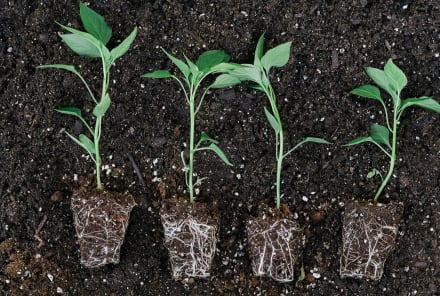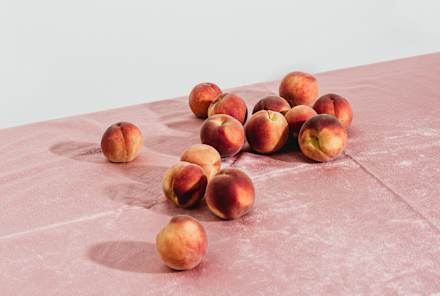Advertisement
Reasons To Spend More Time Outside This Spring + How To Actually Do It


Want to eat healthier? Time in nature might help.
In a survey of 300 adults in Philadelphia, people who reported feeling more connected to nature tended to eat a more varied diet rich in fruits and vegetables. Better nutrition could be yet another benefit of spending time outdoors, though those behind the survey note that "future research should explore the ways different communities experience and value nature." (Read the research here1.)
Being outdoors is comforting, even during times of physical pain.
Participants in this study were asked to take a quick, steep outdoor hike after taking either beta-alanine (an amino acid that increases pain perception) or a placebo.
Even though those who took the beta-alanine were in pain throughout the experience, they still scored high on the "connectedness to nature" scale—which measures their emotional and spiritual connection to nature—after the exercise. This demonstrates that we can still feel supported by nature even in, and perhaps especially in, difficult moments. (Read the research here2.)
Just living near greenery can boost brain function and heart health.
In sweeping research on 116,429 middle-aged, mostly white women, those who lived in greener neighborhoods (as measured by satellite imagery) tended to score higher on tests that measure cognitive function than those who live in more developed areas. (Read the research here3.)
Being surrounded by greenery also seems to support cardiovascular health. In a separate study out of Northern California, people who had previously had a heart attack and/or stroke were less likely to die of cardiovascular disease if they lived in a greener, more walkable area—even if it was high in air pollutants like PM2.5. (Read the research here4.)
Wildfires are altering the air-quality calendar.
Increasingly severe wildfire seasons across the Pacific Northwest are causing a spike in unhealthy air pollutants late into the summer, new research finds. "Wildfire emissions have increased so substantially that they're changing the annual pattern of air quality across North America," said lead author Rebecca Buchholz. Her team estimates that the resulting pollution could threaten clean air goals and risk 130 million people's health across the continent. (Read the research here5.)
Therapeutic gardens could help reduce depression in cities.
According to a new study in Frontiers in Psychiatry, spending more time outside can help improve mood, and therapeutic gardens with "contemplative landscapes" seem to be particularly therapeutic for urban dwellers experiencing depression. These landscapes6 tend to have layers of greenery and vegetation, plenty of colors, and areas that provide the opportunity for peace and silence. "The provision of easily accessible therapeutic gardens to city residents can then be an important strategy for mental health promotion at the city scale," the study authors conclude. (Read the research here7.)
Monthly focus: Re-emerging.
With winter behind us in the Northern Hemisphere, many people are now itching to spend time out in nature. As we should! Stepping outside helps most of us feel calmer, less stressed, and more connected to the world outside of our computer screens. And as research continues to show us, nature time is just as essential to our health as proper nutrition or good sleep (and it just might help out those things, too!). So the next time you're tempted to skip that daily walk or stay inside firing off a few more emails, remember all these reasons to embrace the spring.
These resources are here to help:
A new app called Nature Dose speaks to our goal-oriented side by gamifying greenery time. It lets you set a goal for how many minutes you'd like to spend in nature each week and tracks your progress for you. (You can even connect it to athletic apps like Strava). Ultimately, the app's creators hope to elevate nature time to the fourth ring on the Apple watch—solidifying it as just as essential for our health goals as daily movement and exercise. Think of it as a little extra nudge of encouragement to get outside this season; just don't check your phone the whole time once you're there!
7 Sources
- https://journals.sagepub.com/doi/10.1177/08901171221086941
- https://www.mdpi.com/1660-4601/18/15/8134
- https://pubmed.ncbi.nlm.nih.gov/35476063/
- https://pubmed.ncbi.nlm.nih.gov/35434462/
- https://www.nature.com/articles/s41467-022-29623-8
- https://journals.sagepub.com/doi/10.1177/0265813516660716
- https://www.frontiersin.org/articles/10.3389/fpsyt.2022.757056/full#B9











